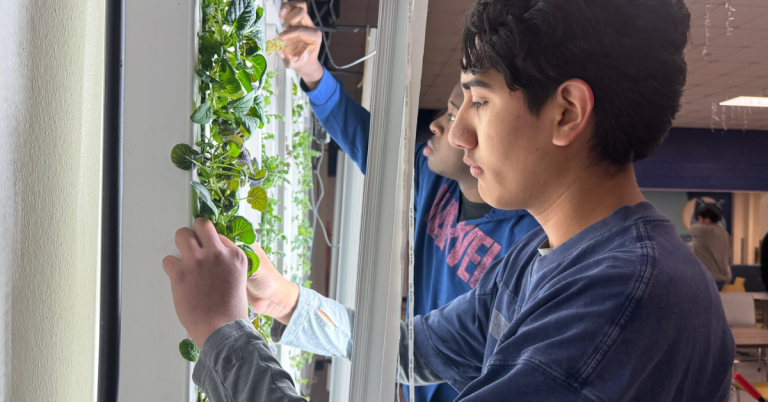At CityLab High School, students are doing more than completing class assignments; they are preparing for college and future careers through Dallas ISD’s Career and Technical Education programs.
From digital restaurant designs to hydroponic gardens, CityLab’s pathways in architecture and environmental systems allow students to apply what they learn to real-world projects while exploring personal interests and career options.
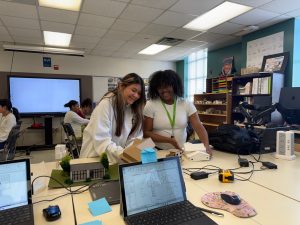 “CityLab has taught me how to manage time efficiently, complete tasks in an orderly manner, and work with people on the completion of a singular, large task,” said Bailey H., who is in the environmental systems pathway. “This is a welcoming community with an interesting focus on things that are extremely applicable to real life. It’s a great opportunity full of vibrant people and great teachers.”
“CityLab has taught me how to manage time efficiently, complete tasks in an orderly manner, and work with people on the completion of a singular, large task,” said Bailey H., who is in the environmental systems pathway. “This is a welcoming community with an interesting focus on things that are extremely applicable to real life. It’s a great opportunity full of vibrant people and great teachers.”
In the architecture pathway, junior Aliza G. found inspiration close to home.
“I have an older sister who came here for architecture, so I found the program interesting,” Aliza said. “Right now, we’re building our own restaurant. I picked a restaurant with an outside dining room and a bar area, and I got to design it all, measurements, layout, and the ocean view.”
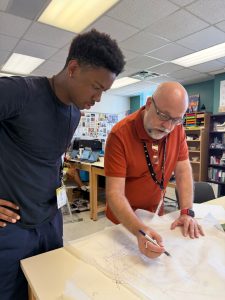 Under the guidance of architecture teacher Alex Knesnick, students use Revit design software to create floor plans and 3D renderings of community spaces, restaurants, or boutiques.
Under the guidance of architecture teacher Alex Knesnick, students use Revit design software to create floor plans and 3D renderings of community spaces, restaurants, or boutiques.
Jahri W., who is also in the architecture pathway, said her mother encouraged her to join the architecture pathway as a way to hone her artistic ability.
“I find it really fun,” she said. “Overall, CityLab is a good school, and it’s perfect for somebody who doesn’t enjoy large spaces because this school is a little smaller than regular schools.”
Across the hall, the environmental systems lab glows with the purple light of grow lamps, where students maintain hydroponic systems and test pH levels for crops.
The program, led by Allison Miller, focuses on agriculture, natural resources, and sustainability.
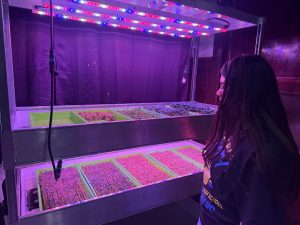
For Bailey, CityLab senior, the program has become a blend of science, teamwork, and curiosity.
“Agriculture really piqued my interest. It’s like a familial green thumb that runs in my family,” Bailey said. “The curriculum is genuinely informative and well-paced. Students learn about livestock, energy, and natural resources, and later get hands-on experience maintaining motors, managing chemicals, and growing plants in unique conditions.”
Bailey especially enjoys hydroponics, which combines technology and plant science.
“It’s not just sitting at a desk, it’s learning by doing,” Bailey said. “Teamwork is a big part of every project, and that’s a skill that applies anywhere.”
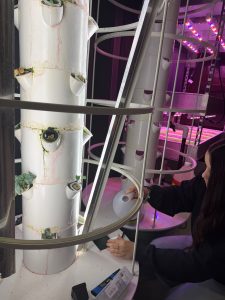
Miller said students gain more than agricultural knowledge.
“The biggest thing they take away is how to sustain themselves,” she said. “Especially in areas like Dallas, where we’re technically in a food desert, learning how to grow and nourish your own food is a powerful skill. Even small projects, like growing microgreens, teach them how to support themselves and their communities.”
To learn more about CityLab and how students can launch their legacies, attend Discover Dallas ISD on Saturday, Nov. 1, at the Automobile Building in Fair Park.

